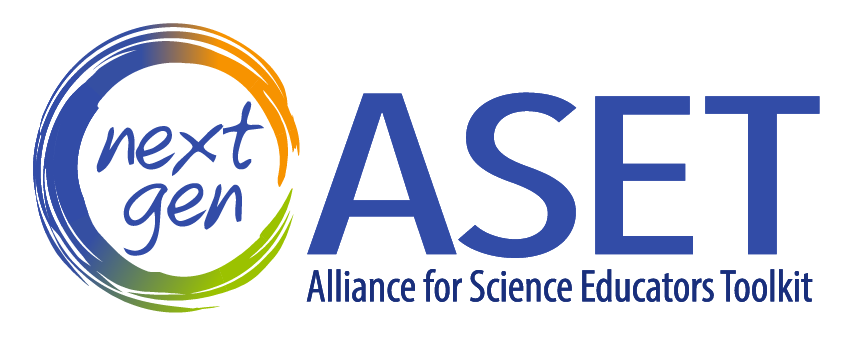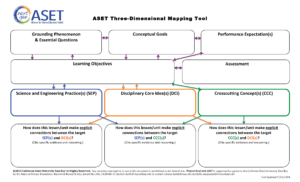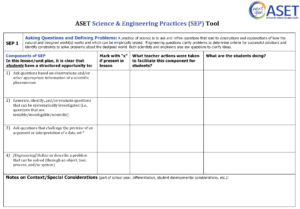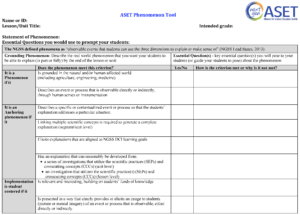
The ASET Toolkit is a Next Generation Science Standards (NGSS) planning toolkit designed to help science educators plan lessons and units that integrate the 3 dimensions outlined in the Framework (NRC, 2012). The tools are not meant to be used in isolation, but with peers to promote discourse for understanding the goals and aligning instruction for the NGSS.
The toolkit includes:
- Dialogic tools that foster and support deepening awareness and understanding of how to make the significant shifts in instruction, learning, and formative assessment required by the new science reform documents, and
- Analytical tools for revising existing and/or developing new curriculum that better supports 3-dimensional teaching, learning, and formative assessment of student learning.
The toolkit was developed by the ASE NIC as part of the Next Gen ASET Project.
The toolkit
Click on the tools below for more information about them and tips on how to best utilize them
A one-page graphic organizer to help ground discussions of curriculum and instruction in the dimensions of the NGSS, while linking these to larger topics generally discussed as part of instructional planning.
 3D Mapping Tool Introduction Video
3D Mapping Tool Introduction Video
A set of eight tools for each grade band with guiding criteria to support understanding of each individual SEP. The criteria outlined help identify specific components of a SEP to hone objectives in a given lesson or unit.
 SEP Tools Introduction Video
SEP Tools Introduction Video
A tool that provides explicit criteria with which to evaluate phenomena, to help support identification of phenomena for lessons aligned with the vision of NGSS. This tool can be used with the 3-dimensional mapping tool or on its own.
 Phenomenon Tool
Phenomenon Tool
NOTE: This toolkit is continually evolving and may have changes or additions made as new resources are developed.



